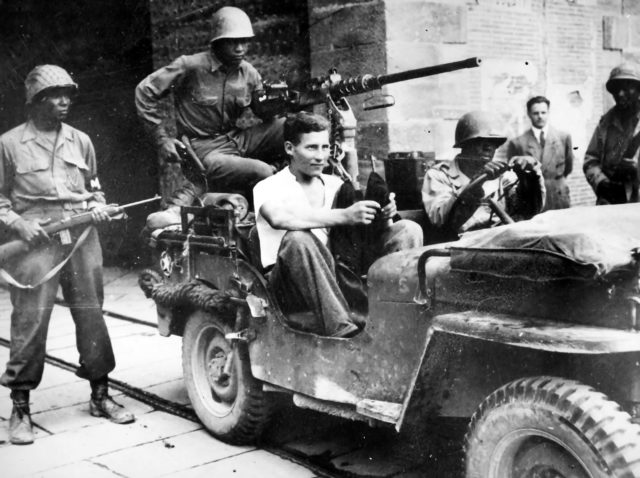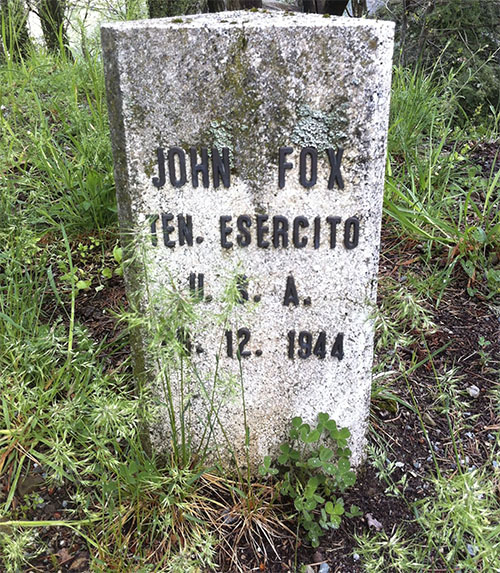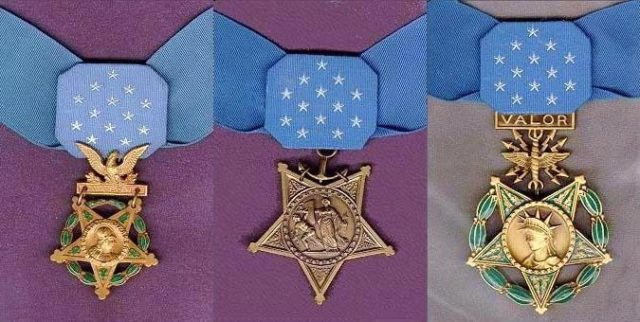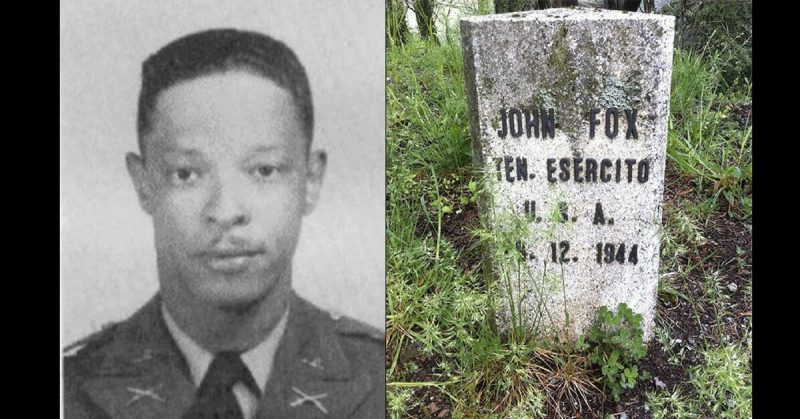John Robert Fox was an American soldier who was killed in action when he deliberately called artillery fire on his own position after his position was overrun. By sacrificing himself, he succeeded in defeating a German attack in northern Italy during World War II. He was posthumously awarded the Medal of Honor in 1997, for willingly sacrificing his life.
Fox was born in Cincinnati, Ohio on May 18th, 1915, and attended Wilberforce University, participating in ROTC under Aaron R. Fisher and graduating with a commission as a second lieutenant in 1940. He was just 29 years old when he called artillery fire on his position the day after Christmas in 1944, for which he was first posthumously awarded the Distinguished Service Cross in 1982. It was more than fifty years after his death before Fox was finally awarded the Medal of Honor. After being repatriated, his body was buried in Colebrook Cemetery in Whitman, Massachusetts.

In the early 1990s, it was determined that during and immediately after WWII African-American soldiers had been denied consideration for the Medal of Honor solely because of their race. Seven African-American soldiers had their Medals upgraded in January 1997 to the Medal of Honor; First Lieutenant Fox was one of them.
The 92nd Infantry Division (colored), also known as the Buffalo Soldiers, was a segregated African-American division that fought on the Italian Front during World War II. First Lieutenant John R. Fox was assigned to the 366th Infantry Regiment.
In December 1944, American troops had been forced to withdraw from the Italian village of Sommocolonia when the Germans overran them. Fox volunteered to stay behind as part of a small forward observer party. From his position on the second floor of a house, Fox directed defensive artillery fire.
The Germans were in the open in the streets and attacking in strength, vastly outnumbering the small group of American soldiers. Lieutenant Fox radioed in to have the artillery fire adjusted closer to his position, then radioed again to have the shelling moved even closer. The soldier receiving the message was stunned since that would bring the deadly artillery fire right on top of Lieutenant Fox’s position; he would surely be killed.
When Fox was told this, he replied, “Fire it.”
‘That last round was just where I wanted it, the young lieutenant reported. “Bring it in 60 yards more.”
The receiving operator thought Fox was mistaken – the order would train the full fire of up to 75 heavy caliber artillery guns directly on Fox’s position.
Fox confirmed the order: “There’s more of them than there is of us.”
Seconds later the bombardment began. And within minutes, hundreds of shells had hit the target. Each one powerful enough to blast the house and its occupants into oblivion.

In the end, the artillery strikes forced the Germans to delay their advance through the town. This gave the American soldiers time to reorganize and launch a counterattack which allowed them to retake the town from German control.
When the soldiers went to recover the body of Lieutenant Fox and the eight Italian soldiers who’d been killed as well, they also found the bodies of about 100 German soldiers around the wreckage.
Medal of Honor citation
For his “gallant and courageous actions, at the supreme sacrifice of his own life,” Fox was posthumously awarded the Medal of Honor. His widow, the former Arlene Marrow of Brockton, Massachusetts, received his medal from President Bill Clinton in a White House ceremony on January 13, 1997.On that day, Clinton also awarded the medal to six other previously neglected African-American World War II veterans, including Vernon Baker, who was the only one living when awarded.
“For extraordinary heroism against an armed enemy in the vicinity of Sommocolonia, Italy on 26 December 1944, while serving as a member of Cannon Company, 366th Infantry Regiment, 92d Infantry Division. During the preceding few weeks, Lieutenant Fox served with the 598th Field Artillery Battalion as a forward observer. On Christmas night, enemy soldiers gradually infiltrated the town of Sommocolonia in civilian clothes, and by early morning the town was largely in hostile hands. Commencing with a heavy barrage of enemy artillery at 0400 hours on 26 December 1944, an organized attack by uniformed German units began.

Being greatly outnumbered, most of the United States Infantry forces were forced to withdraw from the town, but Lieutenant Fox and some other members of his observer party voluntarily remained on the second floor of a house to direct defensive artillery fire. At 0800 hours, Lieutenant Fox reported that the Germans were in the streets and attacking in strength. He then called for defensive artillery fire to slow the enemy advance. As the Germans continued to press the attack towards the area that Lieutenant Fox occupied, he adjusted the artillery fire closer to his position. Finally, he was warned that the next adjustment would bring the deadly artillery right on top of his position.
After acknowledging the danger, Lieutenant Fox insisted that the last adjustment be fired as this was the only way to defeat the attacking soldiers. Later, when a counterattack retook the position from the Germans, Lieutenant Fox’s body was found with the bodies of approximately 100 German soldiers. Lieutenant Fox’s gallant and courageous actions, at the supreme sacrifice of his own life, contributed greatly to delaying the enemy advance until other infantry and artillery units could reorganize to repel the attack.
His extraordinary valorous actions were in keeping with the most cherished traditions of military service, and reflect the utmost credit on him, his unit, and the United States Army.”
